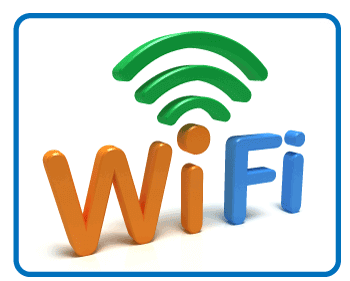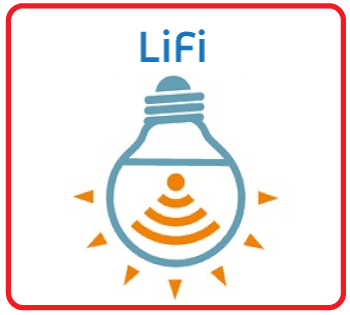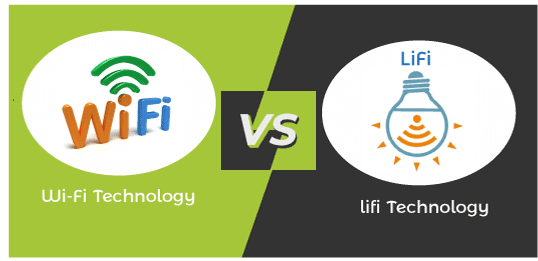Difference between wifi and lifiIn this article, we will discuss the comparison between wifi and lifi along with their separate discussion. Both wifi and lifi are different technologies that are used to send and receive data wirelessly. The term lifi might be unfamiliar to some people, even though it has been around for many years. So, before jumping directly to the comparison, we first see a brief description of both terms to make the people familiar with these concepts. WifiWifi is a wireless networking technology, stands for wireless fidelity. It uses the IEEE 802.11 standard to provide wireless internet and network connections. Providing an Internet connection via cable is distinctive because of its installation and deployment on each computer, so WiFi is more popular because it provides a wireless connection. 
It operates like a local area network without the use of a wire or cables. Modern computing devices like laptops and mobile phones, as well as digital cameras and smart TVs, all have Wi-Fi capabilities. Data transfer rates are also very fast when using Wi-Fi to share files, data, etc., among two or more computers or mobile phones. Wi-Fi-enabled devices can be connected via wireless access points and wired devices, and the Internet. LifiLifi stands for Light fidelity that uses LED bulbs and light signals for transferring and receiving the data. From several decades, light has been used as an illuminating device in homes, offices, etc. But in today's era, along with providing us light, LEDs are also used in the form of communication. Now, LEDs can be used as a wireless communication that can connect a computer or a smart device with World Wide Web. 
It is light-based communication technology that also provides a high-speed network as similar to wifi. Lifi is faster than wifi and can be considered as an alternative of wifi. With just an addition of a small microchip, LED can work as illuminating device and wireless device. It is mostly used in airlines, undersea exploration, etc. It can work in a dense environment. Wifi v/s Lifi
Now, let's see the comparison between wifi and lifi. We are comparing both terms on the basis of some characteristics to make the comparison more clear and understandable.
ConclusionFrom the comparison between wifi and lifi, it is difficult to choose one over the other as both have their own advantages and disadvantages. Lifi is a new technology that is able to use as an alternative of wifi. It has a faster data rate and security. Lifi also provides a great range of data transfer. So, that's all about the article. Hope it will be helpful and informative to you.
Next TopicDifference between
|
 For Videos Join Our Youtube Channel: Join Now
For Videos Join Our Youtube Channel: Join Now
Feedback
- Send your Feedback to [email protected]
Help Others, Please Share










